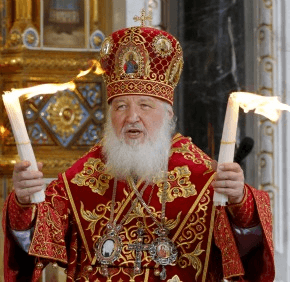Catholic News Service
Also see:
Pope, Russian Orthodox patriarch to meet in Cuba, Vatican announces
Copyright ©2016 Catholic News Service/U.S. Conference of Catholic Bishops.
We value your privacy
We use cookies to enhance your browsing experience, serve personalised ads or content, and analyse our traffic. By clicking "Accept All", you consent to our use of cookies.
We use cookies to help you navigate efficiently and perform certain functions. You will find detailed information about all cookies under each consent category below.
The cookies that are categorised as "Necessary" are stored on your browser as they are essential for enabling the basic functionalities of the site. ...
Necessary cookies are required to enable the basic features of this site, such as providing secure log-in or adjusting your consent preferences. These cookies do not store any personally identifiable data.
No cookies to display.
Functional cookies help perform certain functionalities like sharing the content of the website on social media platforms, collecting feedback, and other third-party features.
No cookies to display.
Analytical cookies are used to understand how visitors interact with the website. These cookies help provide information on metrics such as the number of visitors, bounce rate, traffic source, etc.
No cookies to display.
Performance cookies are used to understand and analyse the key performance indexes of the website which helps in delivering a better user experience for the visitors.
No cookies to display.
Advertisement cookies are used to provide visitors with customised advertisements based on the pages you visited previously and to analyse the effectiveness of the ad campaigns.
No cookies to display.

Catholic News Service
Also see:
Pope, Russian Orthodox patriarch to meet in Cuba, Vatican announces
Copyright ©2016 Catholic News Service/U.S. Conference of Catholic Bishops.
The Catholic Review is the official publication of the Archdiocese of Baltimore.
